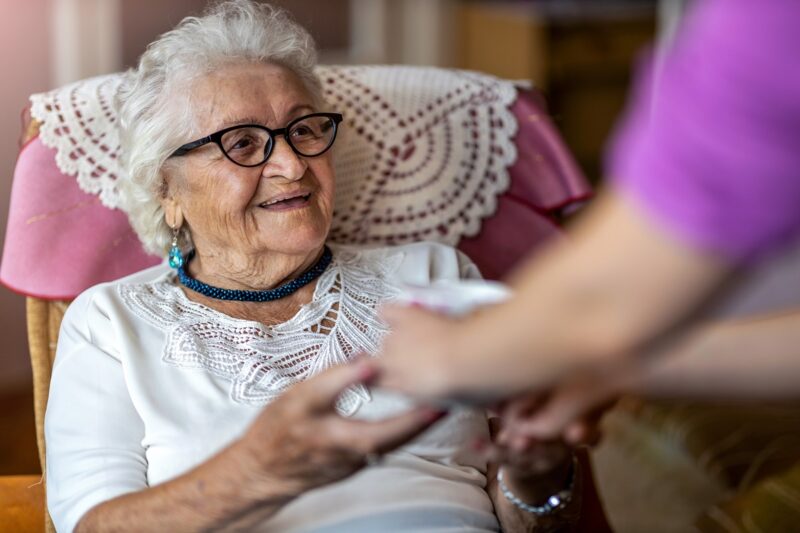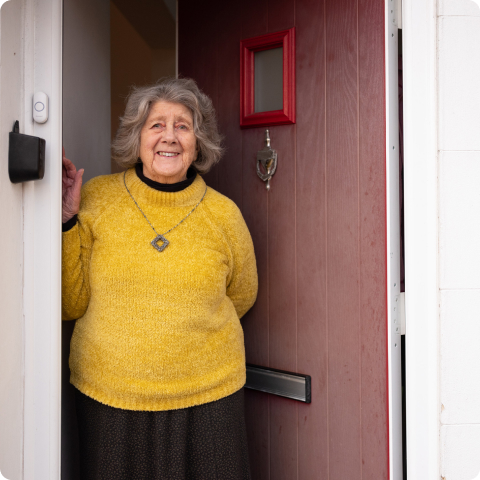If you’re considering live in care for your loved one, you’ll likely be thinking about the live in care costs. It’s not unusual to hear of large amounts of money being required to facilitate this level of required care. It could be the case that you’re thinking about ways to make it work – including grants, equity release, savings, or some other source of finance.
It’s essential to be in command of all the facts before you decide about such care – and the cost should come high on the list. While there’s no way to give a completely accurate figure for each individual without considering their personal circumstances, there are some general suggestions that can be helpful.
The cost of live-in care
As your loved one is staying in their own home, you may, as we have seen with previous options we have shown you, you may need to cover some expenses to modify the property. That’s the first thing to consider, what modifications do we need to make (if any) and how much will that cost?
Live-in care typically starts at £1,250 a week and can vary based on several factors or circumstances. For comparison, the average self-funder cost of a care home is c. £900 per week, so live-in care provides much better value for money, with the support and dedicated one-on-one care at all times, plus the benefit of being in familiar surroundings.
Unlike some other providers, there are no regular additional or ‘hidden costs’ for this services. It is common for other providers to charge £35 a week towards Carers’ meals and travel expenses. We have all of this covered within the cost of your package.



Live in care cost is
never set in stone
never set in stone
Before beginning to investigate just what the cost of 24-hour care in your own home might be, it’s worth understanding that there is no hard and fast rule on this front. There are many different variables at play, one of which is your loved one’s individual situation. If your loved one requires care from more than one carer, for example, the live in care cost will rise.
It can also vary depending on where your loved one is based in the country. The cost of labour is, of course, higher in some places relative to others, and it may be the case that those in more expensive areas are required to pay more. For that reason, it’s important to resolve to take these potential price points as a guide rather than a fixed list.
Basic live in care rates to bear in mind
With the above caveat in mind, it’s now possible to go on to look at some of the basic prices that you can expect to pay. If your loved one is a single person costs will likely be a minimum of £1,250 per week. If your loved one is part of a couple, the minimum pricing will
be more expensive – although it usually begins at £1,700 per week, so it’s often cheaper than the equivalent cost for two individuals. It’s important to stress that it’s not necessarily the case that live-in care will be more expensive than entering a care home.
24 hour live in care entitlements & allowances
One of the advantages (from a financial perspective) of live in care is that it can open more doors for your loved one in terms of options. Often, opting for such care can mean that the value of the home of family members is not included in calculations around how much they can afford to pay – because they’ll need to continue living there. For that reason, it could mean that your loved one is more likely to be entitled to specific funding streams, perhaps from the local council.
However, it’s important to stress that this is not necessarily the case for everyone. Different individuals face varying situations, so there’s no guarantee of what a care cost will be: each case can be different.

Live in care for different conditions
It’s also the case that live in care costs for elderly persons can vary depending on any health conditions that your loved one experiences. The cost of live-in care for a person living with dementia, for example, might be higher or lower than the cost of a live-in carer for another condition.
The reasons why the costs of live-in dementia care and care for other particular conditions can be higher are complex. It can be to do with time: if a carer is required around the clock, for example, this can push up the live in care rates compared to a carer who is only present during the day. Sometimes, however, it is because your loved one requires a more specialised care. For that reason, the price could be higher as it will require the recruitment of a carer with appropriate experience and training. No two cases are the same, so it’s a good idea to communicate upfront and be honest about your loved one’s situation.
It’s essential to get in touch with your care provider early to discuss your loved one’s needs. It is vital for many reasons, not least because it allows the provider to judge whether or not they can help, as healthcare professionals may be required – and advise you on what the ideal care package would look like. It also allows you to get an accurate quote from them, so make sure that you voice your loved one’s needs in as much detail as you can when you have this initial conversation.
Live in care costs for the elderly
Of course, looking at the price and cost of live-in care is essential, but it’s also vital to make sure that you assess the value that you and your loved one will be receiving once the care package is active. This begins very early in the process: the amount you’ll be charged for live-in care doesn’t just pay for the carer but also pays for an expert at the care provider to determine which carers are best suited to your family member.
Live in care costs for the elderly
Of course, looking at the price and cost of live-in care is essential, but it’s also vital to make sure that you assess the value that you and your loved one will be receiving once the care package is active. This begins very early in the process: the amount you’ll be charged for live-in care doesn’t just pay for the carer but also pays for an expert at the care provider to determine which carers are best suited to your family member.
But this value also continues to persist as the caring relationship unfolds. Live-in carers can do everything from ensuring that your family member is fed a nutritious diet to making sure they take their medication. There’s also an additional level of security involved with a live-in carer because you know that your loved one will be accompanied for most or all of the time.
In short: live-in care prices are not necessarily going to be higher than the equivalents for residential care, but even if it is, it can also be more valuable – for a whole host of reasons.

Open ended live in care periods
Finally, it’s also vital to acknowledge that the cost of care cannot – by its very nature – be worked out in total in advance. It’s impossible to know about life expectancy and how long care will be required. For that reason, it’s essential to discuss with your care agency, independent financial advisor and loved one to ensure that a sustainable plan for the long term is worked out.
Overall, the costs and prices of live-in care can vary depending on the individual circumstances. Someone who needs extra live-in care in an expensive area may pay less than someone who needs a lighter level of live-in care in a less prosperous place, for example – so it always pays to get a quote. By using the general pointers shared on this page, you can start putting together a guide for your loved one’s live-in care costs.
It’s simple to get started
Speak to our experts
Our care experts assess your loved one’s needs and together you design the support that’s right for you.
Get Lifted
We’ll match you with our Carers and get started. We’re here
to help every step of the way.


